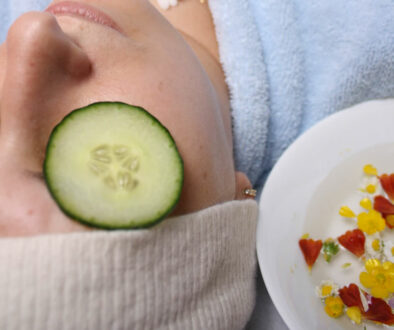Natural Remedies and Treatments for Eczema
Eczema, a skin condition characterised by red, inflamed, itchy, and often dry and flaky skin, can be a challenging condition to manage. While there are medical treatments available, such as topical steroids, many individuals are also interested in exploring natural remedies.
In fact, these natural treatments can complement medical interventions and may help to reduce the frequency and severity of eczema flares. Here’s a look at some of the most well-studied and effective natural treatments for eczema.

1. Understanding Eczema
Eczema is a term that refers to a group of conditions causing inflammation of the skin. The most common form is atopic dermatitis. Symptoms can include dryness, itching, redness, cracking, and occasional bleeding. Eczema is generally a result of an overactive immune response to triggers, which can be anything from soaps, detergents, and food allergies to dust mites, pet dander, and changes in weather.
2. Natural Remedies for Eczema
Coconut Oil
Coconut oil is rich in lauric acid, which is known for its antimicrobial properties. The oil also helps to hydrate the skin and has been shown in studies to be effective in reducing symptoms of eczema. You can learn more about the use of coconut oil to treat eczema here.
Sunflower Oil
Sunflower oil can improve the skin’s barrier function, helping to keep moisture in and irritants out. This can be particularly helpful for people with eczema. There is more to Sunflower Oil than just for cooking.
Aloe Vera
Aloe vera is a plant with anti-inflammatory properties. The gel can be applied topically to the skin and can provide relief from the itching and inflammation associated with eczema. If you have aloe vera plants in your garden or home, try them out. You can find out more about Aloe vera as a treatment for eczema here.
Honey
Honey is known for its antibacterial and anti-inflammatory properties, and it can help to heal wounds. Applied topically, honey may help to alleviate some of the symptoms of eczema.
Oatmeal Baths
Colloidal oatmeal has been used for centuries as a soothing agent to relieve itch and irritation. An oatmeal bath can help to moisturise the skin, reduce inflammation, and soothe the itchiness associated with eczema. Want to know more about using oatmeal baths to help manage eczema, see does oatmeal baths work for eczema?
Probiotics
Probiotics, either consumed as supplements or through probiotic-rich foods like yogurt, can help to balance the gut microbiome. This is important because there is a well-established link between gut health and skin health, and probiotics can help to reduce inflammation and potentially decrease eczema flares. Load up with your probiotics and start healing from the inside.
3. Dietary Changes
Certain foods can trigger eczema flares in some people. While not a treatment per se, identifying and eliminating these trigger foods can help to manage eczema symptoms. Common food triggers include dairy, gluten, eggs, soy, and nuts. However, it’s important to make any dietary changes under the guidance of a healthcare professional, as eliminating entire food groups can potentially lead to nutrient deficiencies.
4. Mind-Body Therapies
Stress can exacerbate eczema symptoms. Therefore, stress management techniques such as meditation, yoga, and breathing exercises can be beneficial. These techniques can help to reduce stress levels, promoting a sense of calm and well-being that may indirectly help to control eczema symptoms.
Final Thoughts
While these natural remedies can provide relief, it’s important to remember that they are intended to complement, not replace, traditional medical treatments. Eczema is a chronic condition that often requires ongoing management. Before trying any new treatment for eczema, it’s always wise to consult with a healthcare professional to ensure that it’s appropriate and safe for you. Remember, what works for one person might not work for another, and finding the right combination of treatments may take some trial and error.











